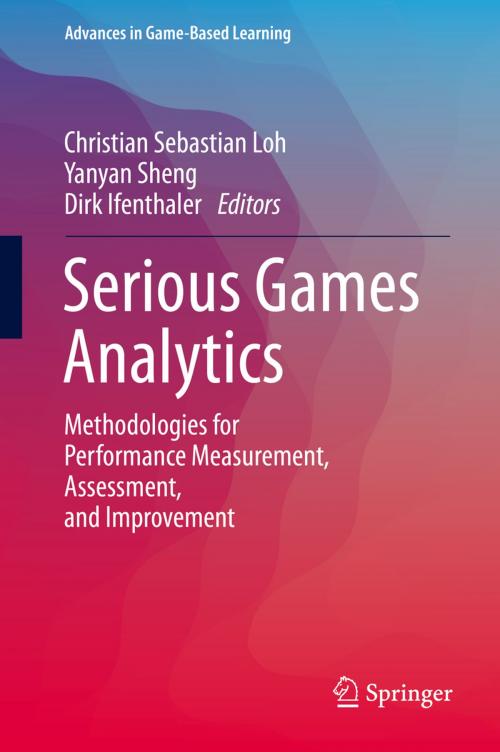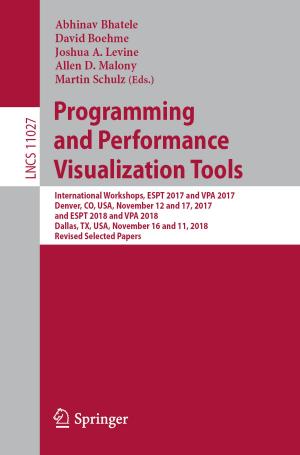Serious Games Analytics
Methodologies for Performance Measurement, Assessment, and Improvement
Nonfiction, Reference & Language, Education & Teaching, Teaching, Computers & Technology, Educational Theory, Educational Psychology| Author: | ISBN: | 9783319058344 | |
| Publisher: | Springer International Publishing | Publication: | June 13, 2015 |
| Imprint: | Springer | Language: | English |
| Author: | |
| ISBN: | 9783319058344 |
| Publisher: | Springer International Publishing |
| Publication: | June 13, 2015 |
| Imprint: | Springer |
| Language: | English |
This volume brings together research on how gameplay data in serious games may be turned into valuable analytics or actionable intelligence for performance measurement, assessment, and improvement. Chapter authors use empirical research methodologies, including existing, experimental, and emerging conceptual frameworks, from various fields, such as: computer science software engineering educational data mining statistics information visualization. Serious games is an emerging field where the games are created using sound learning theories and instructional design principles to maximize learning and training success. But how would stakeholders know what play-learners have done in the game environment, and if the actions performance brings about learning? Could they be playing the game for fun, really learning with evidence of performance improvement, or simply gaming the system, i.e., finding loopholes to fake that they are making progress? This volume endeavors to answer these questions.
This volume brings together research on how gameplay data in serious games may be turned into valuable analytics or actionable intelligence for performance measurement, assessment, and improvement. Chapter authors use empirical research methodologies, including existing, experimental, and emerging conceptual frameworks, from various fields, such as: computer science software engineering educational data mining statistics information visualization. Serious games is an emerging field where the games are created using sound learning theories and instructional design principles to maximize learning and training success. But how would stakeholders know what play-learners have done in the game environment, and if the actions performance brings about learning? Could they be playing the game for fun, really learning with evidence of performance improvement, or simply gaming the system, i.e., finding loopholes to fake that they are making progress? This volume endeavors to answer these questions.















